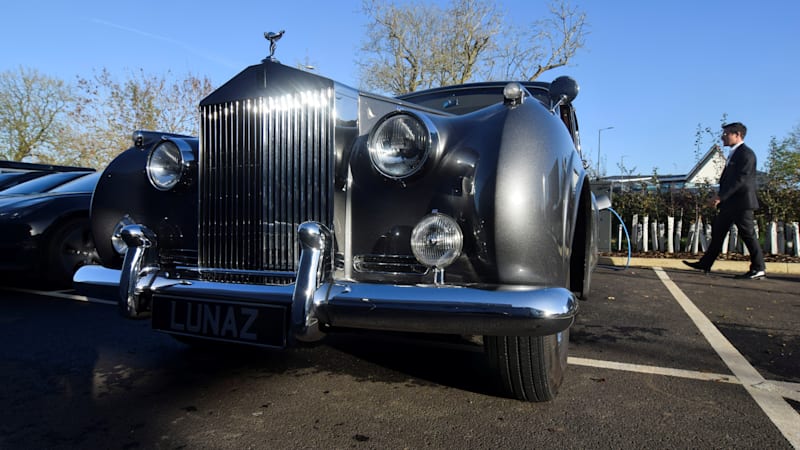SILVERSTONE, England — You can rescue your prized Aston Martin DB6, Porsche 911 or Mustang from the museum of the history of the combustion engine. Or your Fiat 500 and Renault Clio, for that matter.
That’s the message from a growing cohort of European and American startups looking to play a part in the automotive transition by turning the roaring dinosaurs of the fossil fuel era into clean electric vehicles (EVs).
On the higher end, companies like Britain’s Lunaz are selling a “refurbished” Aston Martin DB6 for 1 million pounds ($1.3 million), or the Dutch firm Voitures Extravert, which sells a redesigned 1960s Porsche 911 for 300,000 Euros ( $337,000).
On the lower end, startups like France’s Transition-One have developed no-nonsense kits designed to electrify mass-market models like the Fiat 500 and Renault Clio in a few hours for around €8,000. They bet they can offer drivers a cheaper and greener path to zero emissions than to scrap their car and buy a new one.
Converting electric cars is a cottage industry that has emerged over the past five years and has been turbocharged in the past two years by advances in battery technology and electric motors. The market is largely untested and several industry players interviewed by Reuters described an exciting albeit precarious scene.
“It’s pretty revolutionary right now,” said Mark Roberts, a 30-year McLaren veteran who is now chief creative officer at British startup Charge Cars. “New companies pop up almost every month and you don’t know who will disappear after a year or so or who will be there for the duration.”
Next year, Charge Cars will begin production of 499 electric versions of the 1960s Mustangs, built from the ground up with bodies manufactured under license from Ford and starting at £300,000 each. The company, which initially wanted to convert classic cars, has instead spent five years developing an electric replica model.
“Traditional manufacturers like Porsche can afford to screw it up,” says CEO Vadim Shageleev. “We’re a startup, so we can’t.”
Established startups like him have attracted the attention of traditional car suppliers and manufacturers seeking technical input in the transition to electric – Michelin, for example, has partnered with Charge Cars to test new technologies.
But there may be little room for error as a large number of new EV conversion startups are striving to scale to help them pass the increasing regulatory standards and costs introduced in countries like France.
“New regulations will wipe out a lot of smaller players because they won’t be able to meet the standards,” said Chris Hazell, founder of UK-based Zero EV, another startup working on mass-producing conversion kits for Porsche 964s and other classic models. His company will expand to the United States next year.
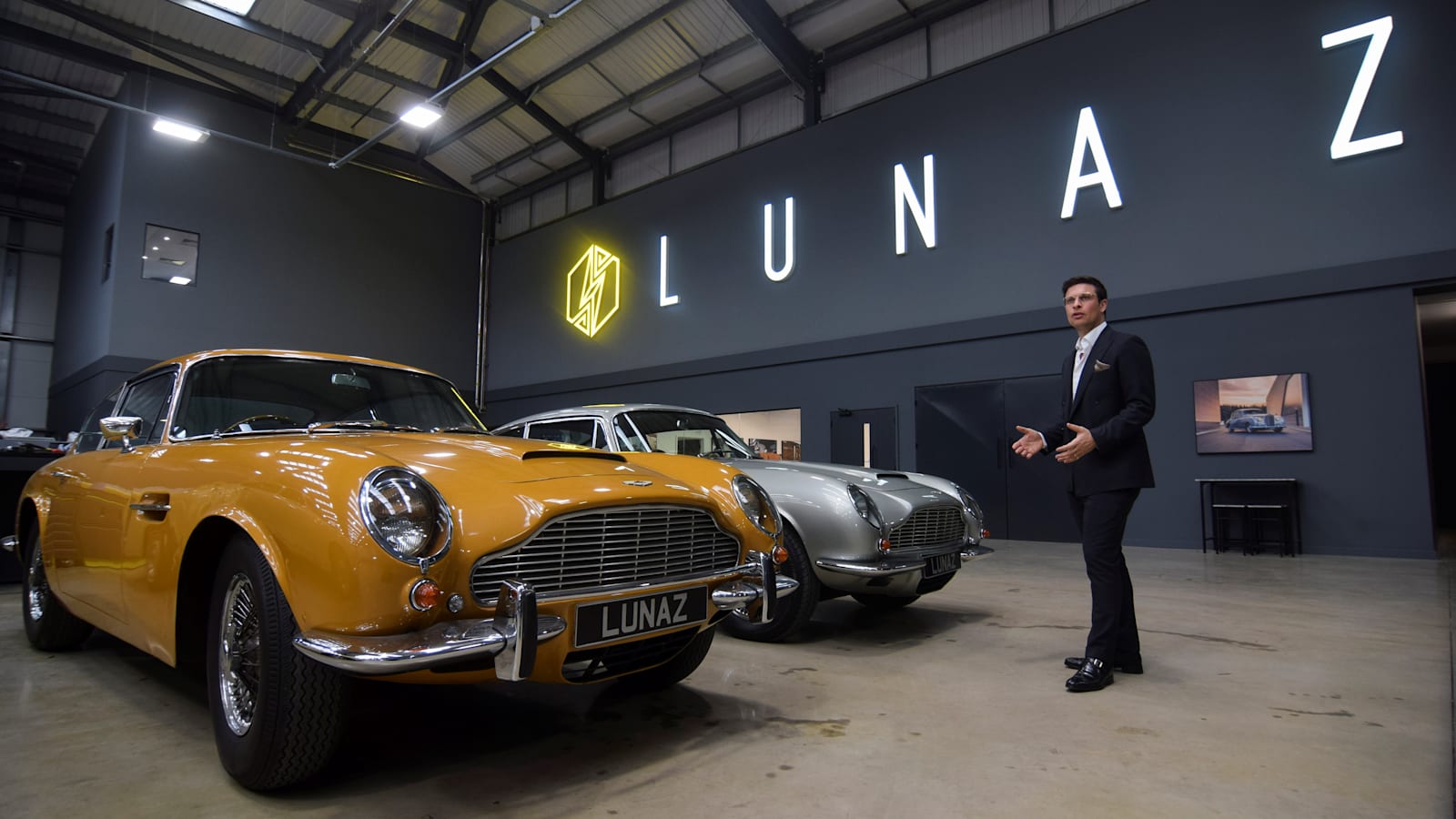
David Lorenz, founder of Lunaz. (Reuters)
Classic to waste
There are several suggested routes to scale.
For example, Lunaz sees classic cars like the Aston Martin DB6 as a good start.
The three-year-old company and its competitors on this side of the EV conversion industry want to take advantage of the world’s large population of classic vehicles, estimated to be 5 million in the United States alone.
Lunaz usually buys a classic car on the open market or takes a customer’s existing vehicle, strip it down to bare metal, rebuild it, give it a fresh paint job, new interior and electric drive system and software with a range of about 250 miles.
But Lunaz sees his future in commercial vehicles and is building a new factory at Silverstone in central England, home of the British Grand Prix, to convert more than 1,000 diesel refuse trucks a year into upgraded electric models.
“Classic cars were the lightning rod to bring us to market,” said founder David Lorenz. “But if you really want to make an impact, you have to have scale.”
Lorenz told Reuters the company was looking for locations for a factory in the US and a factory in continental Europe, and was considering going public in a few years.
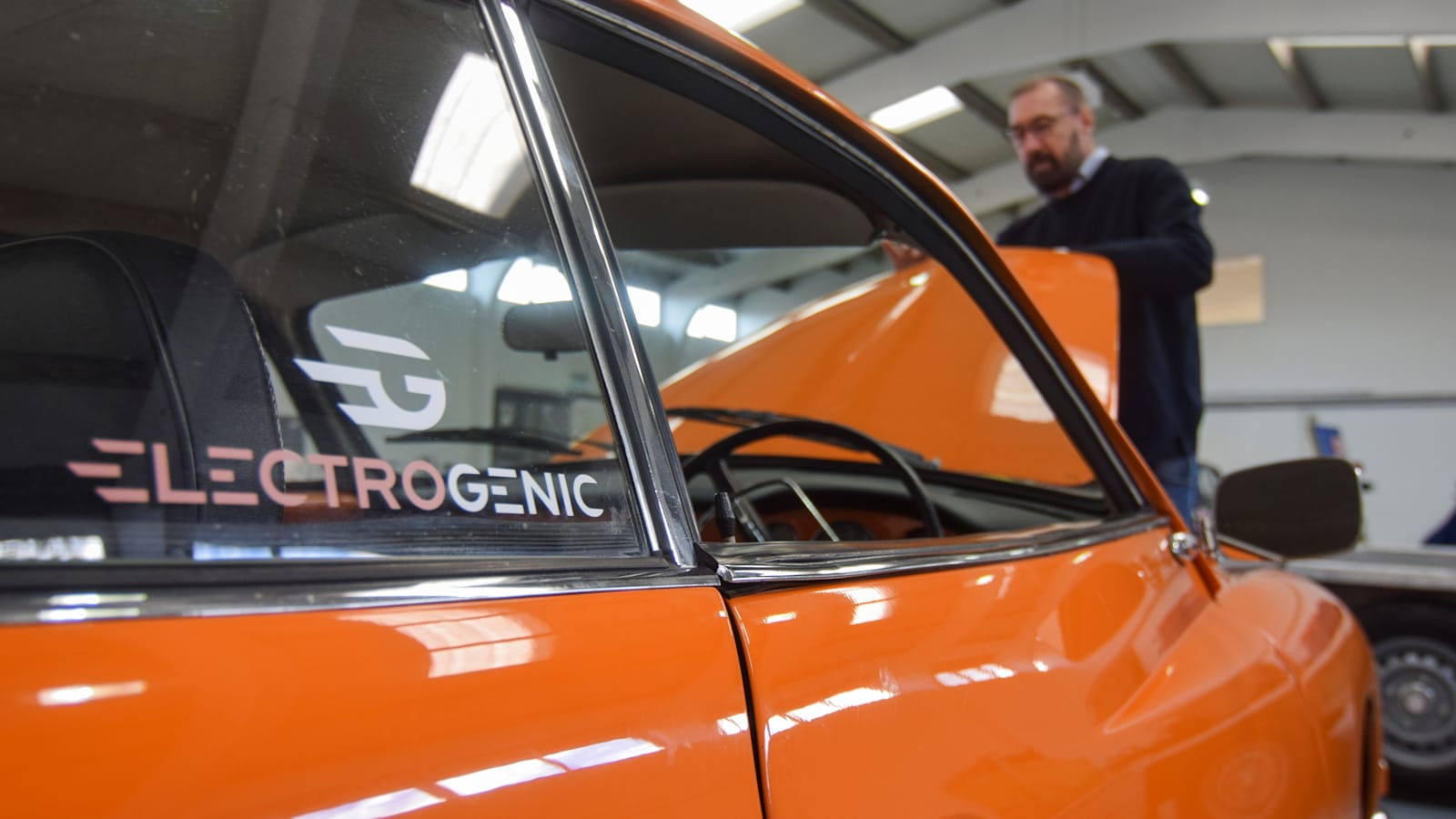
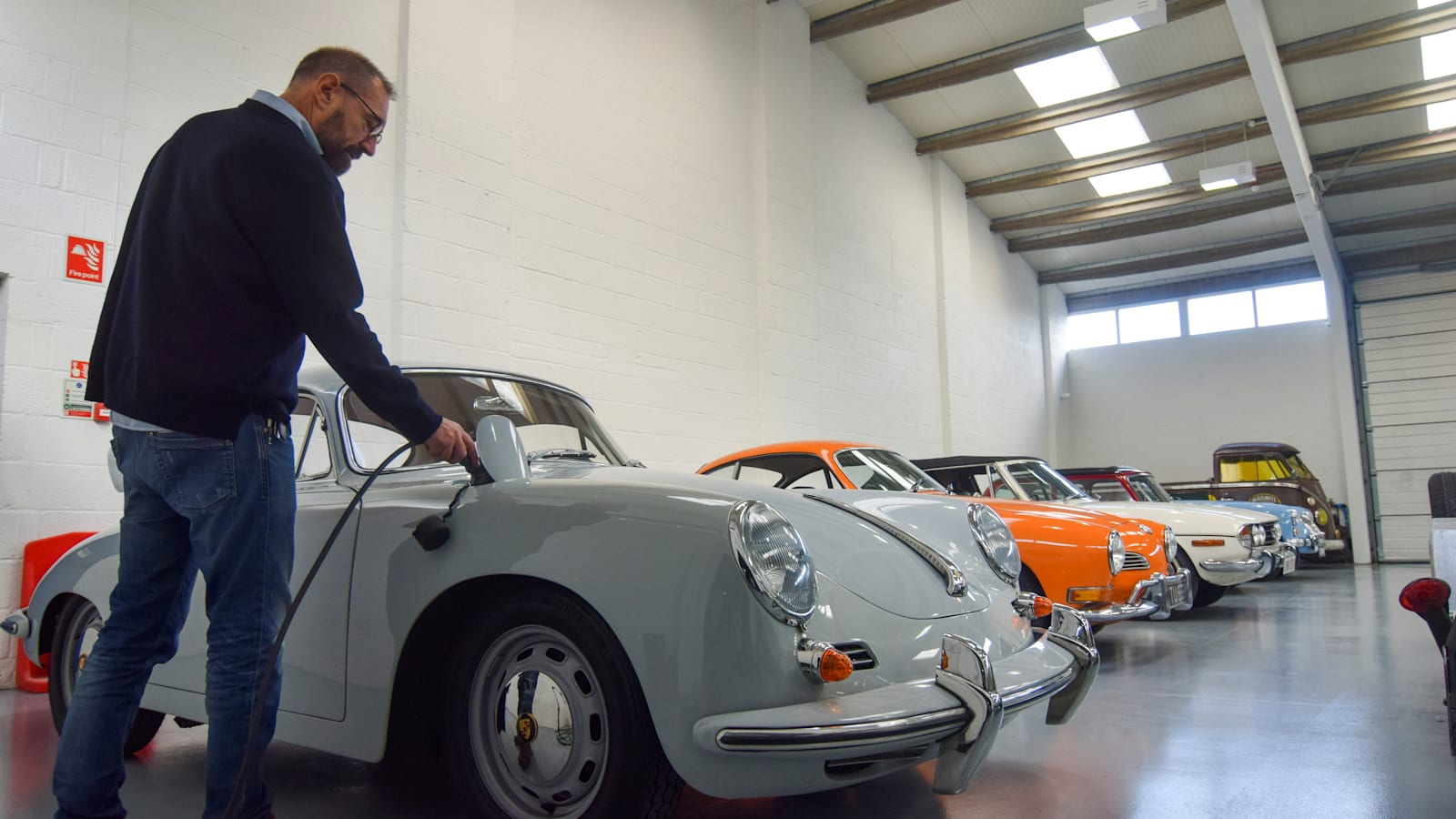
Steve Drummond, co-founder of Electrogenic. (Reuters)
“Throw these cars away?”
By comparison, France is running a race among mass-market converters who see opportunity in the country’s plans to tackle road pollution, which surpass much of Europe.
All diesels older than 2011 will be banned in major cities from early 2025, impacting millions of car owners. Paris wants to go faster and introduce the ban from 2024.
New vehicle customization laws introduced in the country last year that startups say must be tested by the government at about $100,000 per generic model to be converted have increased the need for scale.
Orleans-based converter Transition-One plans to start selling conversion kits for six models, including the popular Fiat 500 and Renault Clio for diesel owners who can’t afford a new EV. The kits consist of a battery, electric motor, power electronics and a new instrument panel, and typically have a range of around 140 km.
The cost to customers could be close to $5,000, including government subsidies, said CEO Aymeric Libeau, who said he plans to produce kits “on a large scale” next year after waiting for retrofit laws to come into effect, with the equipment being supplied by independent technicians. certified by Transition-One.
Arnaud Pigounides, CEO of Paris-based REV Mobilities, estimates that converting a car to electric will reduce emissions by 60% compared to scrapping an old vehicle and manufacturing a new one in a mansion to about 40 million passenger cars.
Pigounides said his company, which offers to convert a range of cars and vans for about half the price of a new vehicle, has orders to convert 370 cars and 1,500 vans.
“The big question is: do we throw all those cars away or do we rebuild them?” he added.
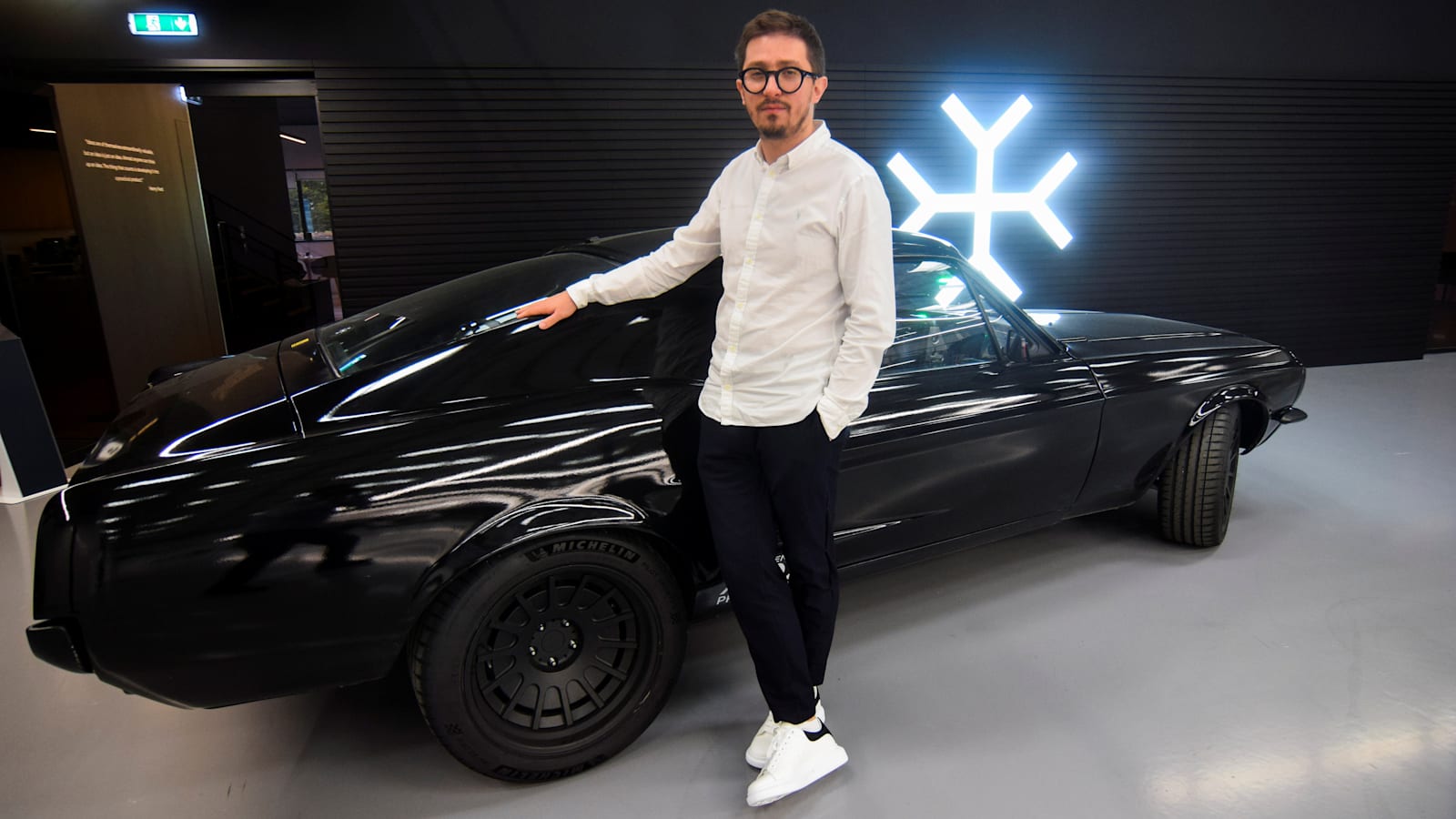
Vadim Shageleev, CEO of Charge Cars, which is building a replica of all-electric Mustangs from scratch in London. (Reuters)
“How do we get 10,000?”
Chris Pateman-Jones, CEO of British car charging company Connected Kerb, said only ‘mass market’ options in the EV conversion industry can make a real difference to the environment, rather than classic cars.
“The cost of producing a new car is huge, so if you can reuse what’s there, it’s a great idea,” he said. “But the challenge is to do it on a sufficient scale to actually have a meaningful impact.”
For four-year-old startup Electrogenic, based down the road from Lunaz, the plan to reach significant size is tapping into the rural UK four-wheel drive market, particularly the Land Rover Defenders which are popular with farmers.
Co-founder Steve Drummond said the company was developing a kit for £20,000 old Land Rover Defenders for local mechanics to install. He added that Britain’s 36,000 farms need four-wheel drive EVs, but there are no equivalent new models on the market.
Meanwhile, in California, Zero Labs is aware of the limitations of its current business running electric “restomods” to rebuild classic Ford Broncos and Land Rovers.
The company’s vehicles start at $350,000, but it can only convert about 50 a year — so it’s developing electric platforms that licensed auto shops can use to convert classic cars.
“We wondered how we do 10,000 a year?” CEO Adam Roe said. “Our platforms are becoming our scale product.”
